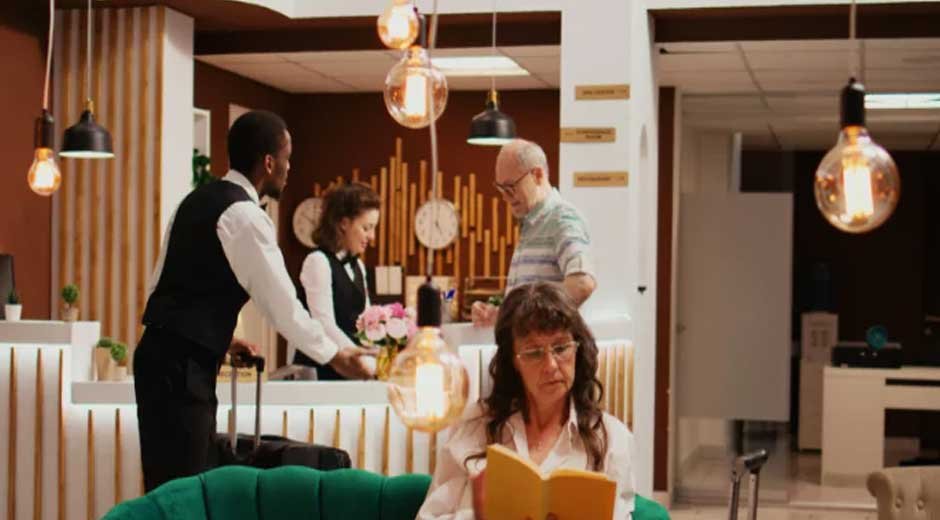The hospitality industry has for a long time been among the most important aspects of tourism worldwide and global travel. However, with the shift in the preferences of travelers and a rise of competition for hotels, they must remain competitive through innovation. From improving the guest experience to streamlining their operations Hotels are expected to take in the latest and most innovative strategies and innovations as quickly as is possible. Some of the most important business metrics, like adr in the industry of hotels are affected by how hotels are able to innovate. This article examines the reasons why innovation is essential for hotels to grow and remain relevant in current times.
What exactly is innovation in the lodging and hotel sector?
Hotels adapt by implementing new ideas, strategies or tools that enhance the experience of guests, streamline processes, and create more revenue. Examples include creating rooms that better cater to client needs, creating booking platforms for hotels that are easy to use and using intelligence to make better choices. In the age of digitalization creativity is no longer a luxury, it’s mandatory. Customers are looking for modern solutions and hotels that do not meet these standards could be left in the slack.
How Technology Improves Guest Experience
Customers expect a simple and personalized experience throughout their stay. Hotels that incorporate new technologies like AI chatbots, touchless check-in and smart rooms will ensure that guests have a memorable stay.
Personalization
For example, AI evaluates guest preferences and suggests menu options, activities or even services that are customized to the preferences of guests. It may seem like tiny gestures, but they can improve the guest’s experience and build loyalty with regular guests.
Revenue Management Improvement
Innovation aids hotels in increasing their ability to manage revenue. Artificial intelligence-driven products and predictive analytics permit hotels to adjust their rates in accordance with the demand. This increases the average rate for rooms in the hotel industry more effectively and also ensures a greater percent of profit.
The results of data analytics driven by innovation insights help make better decisions in terms of pricing and inventory for hotels, and help increase the bottom line.
Role of Technology in Innovation
Technology has revolutionized the appearance of hotels as well as their relationships with their customers. With smart hotels to the mobile first booking platforms the hospitality industry is modernized by technology.
Smart Rooms
Smart rooms, short for smart rooms, are fitted to the fullest extent with IoT technology. Other features include lighting that is activated by voice as well as keyless entry and temperature control. These features make staying in the hotel more comfortable for guests. Predictive maintenance via IoT can help hotels avoid interruptions as the system runs smoothly.
Big Data
Hotels are also utilizing large-scale data to gain a better understanding of the preferences and behaviors of guests. This data can allow hotels to tailor their service and suggest personalized products that cater to the preferences of customers. These are methods that ensure guests are more satisfied while offering the opportunity to increase revenues through efficient upselling.
The Environment: A Creative Way
Nowadays, businesses and travelers are putting a premium on the environment. Eco-friendly hotels are helping to save the environment, and simultaneously they attract customers who are conscious of the environment.
Sustain Architecture
Low-flow plumbing fixtures and energy-efficient lighting and solar rooftop installations are examples of eco-friendly hotel designs. They help to reduce waste, boost resources, and can even reduce operating expenses. These modifications help to attract customers who are interested in environmentally friendly practices.
Waste Reduction
Hotels also make sure to reduce waste. Zero waste programs recycling initiatives, as well as local production and environmentally friendly products are all common. These initiatives help increase the image of a hotel as a responsible business and at the same time reducing long-term expenses.
Reinventing Guest Experiences
It’s not all about sustainability or technology Innovation can also refer to experiences that are unforgettable and unique to guests. The modern-day traveler wants more than just comfort. they want something unique.
Unique Stays
Hotels are now offering experiences, such as themes rooms, retreats for wellness and cultural experiences. For instance massage rooms for yoga as well as guided tours through local landmarks are available in certain areas.
Local Connections
Other hotels concentrate on connecting guests with the local community. Through collaboration with local chefs or artists, hotels can provide guests with authentic experiences which will make their stay more enjoyable while also boosting the economy of the area.
Tackling Innovation’s Delays
In light of its significance, creativity isn’t without its challenges. The implementation of innovative concepts in hotels isn’t easy due to lack of knowledge along with high costs and the inability to adapt. However, the positive side is that each of these issues can be solved with careful planning and investing.
Balancing Costs
Innovative technologies require significant initial investment, which could make it difficult for small hotels. Many innovations — like efficiency-boosting systems or revenue management tools — offered longer-term savings as well as returns.
Staff Training
Another problem is that employees will be required to learn new systems, and making sure that they are effective in these new systems presents a new problem for the manager. Therefore, employee development can ensure smooth transitions and increase the rate of creativity.
Competitive Advantage
Innovation is the way hotels are not just able to survive, but also get an advantage over rivals. Hotels can be distinguished by being ahead of the curve and advancing technology, so that they can draw more clients in their service.
Adapting to Trends
Hotels which introduced contactless check-in technology in COVID-19 eased guests’ anxiety and stayed with their reservations at times where things appeared uncertain. Unrelenting innovation keeps companies relevant, even during difficult times.
Bringing Branding to the Fore
Innovative practices can also boost the image of a hotel. The memory of memorable, unique experiences of guests can be converted into word-of-mouth marketing which boosts revenue over time and attracts new customers.
Conclusion
The development process is crucial to succeeding and surpassing your peers in the highly lucrative hotel industry. From incorporating eco-friendly practices to using technology to enhance customer experience, establishments that encourage innovation are more likely prosper. Revenue oversight innovations, such as the optimization of the hotel industry’s ADR will ensure profitability and satisfaction of customers. Hotels that are affluent in innovation can not only adapt to changing circumstances, but also lead and stand out in an industry that is already saturated.

